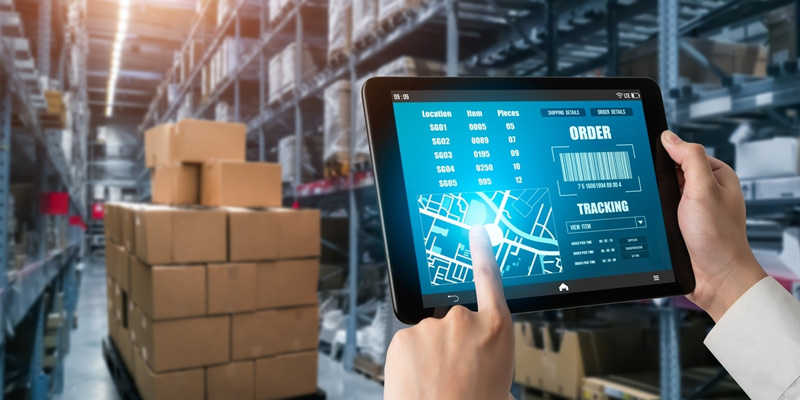
Logistics is a complete network of different units and sources that help maintain a healthy supply chain of commodities and materials for business purposes. The viable presence of efficient logistics is the backbone for running a business and supplying the finished products to the end users. It is a complete process that helps organize, produce, store, move, and transport the commodities from one place to another, making a healthy supply chain that meets the demands of market and manufacturing units. The procedure starts with collecting crude and unprocessed material and ends with the final product and its supply to consumers. Therefore, it is essential to keep the whole process running smoothly without any hurdles. This smooth working of the different operations is achievable only through effective logistics management. Without effective management, a smooth merchandise flow is impossible for businesses, and their customer relationships will not work well for a long time. Therefore, smart plans and policies are essential to manage logistics properly and to keep the flow of goods uninterrupted.
Some Smart Tips And Tactics To Manage The Logistics Appropriately
Logistics management is not a big deal when you have excellent tips and tactics at your hand. The timely use of these tips and tactics can drastically change the working efficiency of different supply chain management tools. These effective and simple tips are also highly effective and apply to almost all types of logistics management that better the performance in a substantial quantity. Following are some of the tips that make logistics management easy for you:
1. Employ A Manager:
Approaching a professional and hiring his services for managing intricate management issues is vital. He can keep an eye on all the operations and procedures in a detailed way. Someone must lead this process with relevant knowledge and the interpersonal skills necessary to collaborate with a wide range of stakeholders involved in the logistics of the materials and supplies. These experts must have the qualities of excellent industry relationships to handle any last-minute logistical changes in suppliers.
2. Automate The Essential Processes:
It should go without saying that automation is an inherent technique to improve the supply chain management process. Task automation is beneficial for a wide range of activities, such as fleet and inventory management, delivery tracking, and delivery monitoring. It brings time management and more work efficiency in different processes. Automation is also beneficial in the field of quantity computation and cost estimation of the different processes.
3. Have A Strong Plan:
The success or failure of management depends on how strong the plan you make for future operations. The more detailed your strategy, the less you’ll need to improvise. There will always be problems and hazards but preparing thoroughly and in advance helps reduce delays and other obstacles related to supply chain and management. So having a strong and feasible plan is essential for better procedures.
4. Develop A Plan B:
No matter how well your first plan works, there will inevitably be a situation it cannot handle. To address potential unanticipated issues, you need a backup plan for each component of your logistics strategies. However, it’s crucial to know when to abandon the primary plan in favor of the backup. But when situations come, you will automatically know the correct time and situations to implement your plan B. Therefore, having a plan B as a backup will ease your process of dealing with urgent situations.
5. Good Control Of Ground-Level Activities:
Thorough knowledge of the ground-level activities provides a combined view of the overall working of the different components. It provides you maintain a smooth supply chain flow and lowers conveyance and delivery troubles. Taking complete control of the different ground-level activities makes different units work at their full ability.
6. Using 3PLs:
Using 3PLs is one of the best ideas when a business intends to outsource the whole distribution and delivery management section. This is because 3PLs are easily accessible and reasonably priced, providing convenient services to different businesses. Moreover, 3PL can provide better services in terms of better delivery experiences, improved compliance adherence, real-time tracking, and hassle-free operations.
7. Developing Effective Risk Control Techniques:
Through strategic planning supported by digital logistics solutions, businesses can strengthen the stability of their supply networks and defend themselves against disasters. However, a lack of skill and soundness in logistics is caused by strict policies and a lack of openness. So, to create better consumer loyalty and higher margins of profits, businesses must adopt digital solutions that help reduce thefts, pilferage, and damage.
8. Locate The Inventory Closer To The Customers:
Locating the inventory closer to the customers is a beneficial idea that helps meet the quick product delivery. It meets customers’ demands more fast rates and creates a better customer relationship. Additionally, it helps maintain a cost-friendly delivery that reduces the product’s total price, resulting in more benefits. Additionally, These last-mile deliveries are customer-friendly because they allow customers to change the products in case of any discrepancy. Also, it offers choices for the customers as they can visit the inventories themselves and select the desired goods themselves.
9. Learn From Your Mistakes:
This code generally applies to almost all management courses. On your path of managing logistics, you’ll make mistakes, and these mistakes are the best methods that teach you lifelong lessons and make further improvements. It will help you deal with different difficulties from next time onwards. You will learn from your errors and prevent future mistakes by having experienced previous mistakes. Take some time to reflect on your past actions, where they flourished and failed, and get information from your staff.
Conclusion
Factories, warehouses, distribution centers, transportation, and small and larger stores for retail sales, are common examples of different types of logistics. Each variety is essential for serving the respective services in their given fields. So their proper management is also essential for efficient and smooth workings and supply management. The plans and tips this write-up discusses are the best and most simple strategies that can bring huge differences in proper logistics management. These are some important and general tips that help sustain better business operations at every stage. For reliable transportation of goods, contact Global Express Carriers. We have an experienced workforce that deliver goods on time and at affordable rates. Visit the website Global Express Carriers to explore their service and logistics-related solutions.


